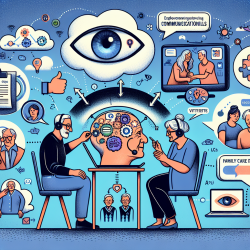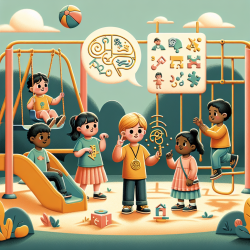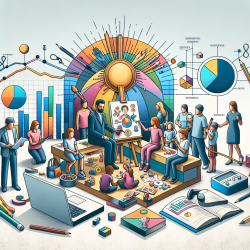Introduction
In the realm of global development, the Millennium Development Goals (MDGs) have served as a pivotal framework guiding international efforts towards improving global health, education, and economic conditions. However, as we move past the 2015 deadline, it's crucial to reflect on the limitations of the MDG framework to enhance future strategies. This blog delves into the research findings from the article "Limitations of the Millennium Development Goals: a literature review" by Fehling, Nelson, and Venkatapuram, offering insights for practitioners, particularly those in speech-language pathology and related fields, on how to leverage these findings for better outcomes in child development and education.
Understanding the Limitations
The MDGs, while ambitious, were not without their shortcomings. The research highlights several intrinsic limitations, including:
- Development Process: The goals were primarily shaped by a few stakeholders, lacking adequate involvement from developing countries.
- Structural Issues: The goals were often seen as either too ambitious or too simplistic, failing to account for local capacities and needs.
- Content Limitations: Key areas such as equity, governance, and specific health issues were insufficiently addressed.
- Implementation Challenges: Data reliability and accountability were significant hurdles in tracking progress.
Implications for Practitioners
For practitioners in speech-language pathology and education, these findings underscore the importance of a nuanced approach to goal-setting and implementation. Here are some actionable insights:
- Inclusive Goal Development: Engage diverse stakeholders, including educators, parents, and policymakers, to ensure goals reflect the needs of all children.
- Localized Strategies: Customize interventions to fit the specific cultural and socioeconomic contexts of the children you serve.
- Focus on Equity: Prioritize interventions that address disparities in access to speech-language services, ensuring all children have equal opportunities to thrive.
- Data-Driven Decisions: Utilize reliable data to inform practice, continually assessing the effectiveness of interventions and making necessary adjustments.
Encouraging Further Research
The research on the MDGs serves as a reminder of the complexities involved in setting and achieving developmental goals. Practitioners are encouraged to engage in further research to explore innovative approaches that address the identified limitations. By doing so, we can contribute to a more effective post-2015 development agenda that better serves children worldwide.
Conclusion
Reflecting on the limitations of the MDGs provides valuable lessons for practitioners committed to improving child development outcomes. By incorporating these insights into practice, we can work towards more equitable and effective solutions that meet the diverse needs of children. For a deeper understanding of the research findings, I encourage you to read the original research paper: Limitations of the Millennium Development Goals: a literature review.










